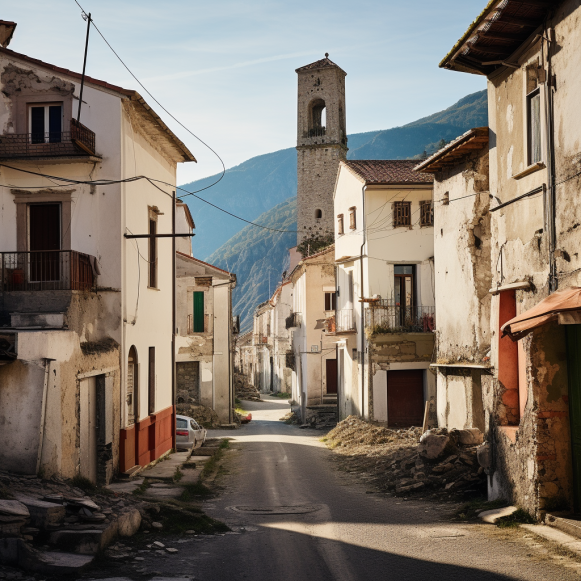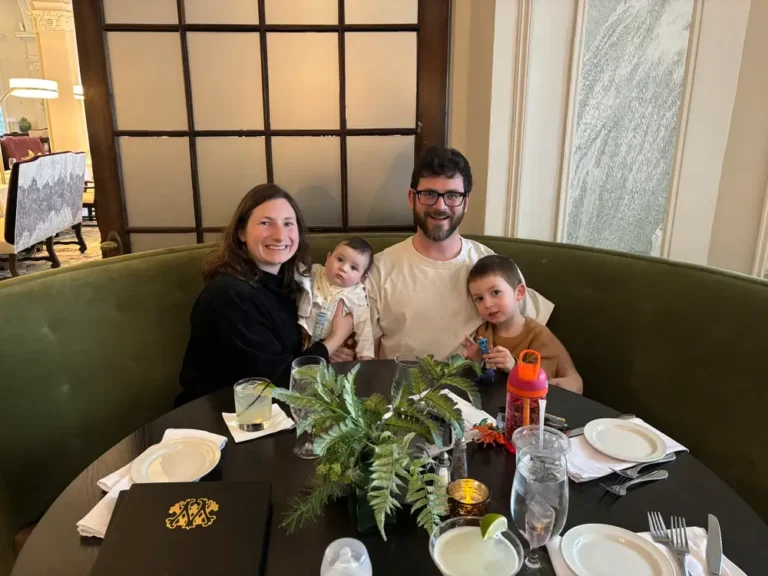This family bought a $27,000 house in Italy because the US is too expensive

In recent years, the rising cost of living in America has taken a heavy toll on households, with many struggling to make ends meet.
One American family has become so dissatisfied with the situation that they have decided to pack their belongings and relocate to a town in the deep south of Italy.
Chris and Jennifer Tidroski of Prescott, Arizona, have joined the growing number of US citizens who have purchased a run-down home in an underpopulated Italian village for pennies on the dollar in search of a slower-paced life.
The effect of living expenses
The Tidroskis paid 26,000 euros (approximately $27,274) for a house in the historical district of the village of Latronico in the Southern Italian region Basilicata in 2021 and have since spent an additional 50,000 euros ($52,450) on renovations.
“Our plan is to relocate in the next year or so, once the house is finished and we receive our visa, with our seven-year-old daughter Lidia.” “We want a better future,” says Chris Tidroski, 49, a former osteopath who now teaches bowling.
According to the couple, the cost of living in the United States has become excessively high, particularly when it comes to healthcare.
Both have worked in the industry and say they’ve seen costs spiral over the last decade and aren’t optimistic that things will improve.
Chris explains that the political polarization in the United States played a role in their decision to relocate to Italy.
“We don’t like the political landscape in the States: it’s laughingly ridiculous,” he states. “There is a shift too far in both directions; there is no longer a middle ground.” We don’t understand.”
Being able to reconnect with his Italian heritage was also a catalyst for change for Chris, whose great-grandfather immigrated to the United States from a village near Latronico at the end of the 1800s.
Cheap property
After reading about Latronico’s housing scheme – local authorities launched an online platform, Your House in Latronico, to help owners meet buyers – the Tidroskis decided to visit the picturesque hilltop town in 2021 to look at the available empty dwellings.
“We chose Latronico based on the advertisement.” “It never occurred to us to buy a house overseas, but I loved the idea of the program and the prices were surprisingly low,” Jennifer, 37, an osteopath, says.
They chose a two-bedroom home measuring 125 square meters, which came with a plot of land and can be reached by car via the old district, after viewing several properties in town.
The sale went off without a hitch, according to Chris, who flew to Italy later that year to sign the paperwork.
The couple has upgraded the floors as well as the kitchen, dining room, bathrooms, and bedrooms since purchasing their Italian home.
They’ve also replaced the roof tiles, installed a heater and air conditioning, updated the plumbing, and repainted the exterior walls a bright yellow.
The Tidroskis explain that the renovation work has taken longer than expected, owing to a builder shortage in Italy.
Over the last three years, Italian households have received government-approved tax credits of up to 110% for green upgrades, sparking a “renovation frenzy” throughout the country.
Renovation postponement
“We were told we just had to wait in the queue, which was a bit frustrating,” said Chris.
Although the costs were slightly higher than expected, the Tidroskis say they couldn’t afford a similar house in the United States.
While the couple has decided not to pursue a license to practice as osteopaths because it is a “very hard pass to get into the Italian board of physicians,” Jennifer intends to open an alternative medicine practice, which does not require a license.
She will be the first practitioner of “non-Western energy medicine” in Latronico, which does not require an Italian board exam.
According to Deputy Mayor Vincenzo Castellano, Latronico currently lacks any kind of osteopath, so Jennifer’s practice will most likely be well-received by the elderly residents.
“I have not been able to spend as much time in Latronico as I would like, but I’m in love with the architecture and small town feel,” Jennifer says.
“Watching people walking to the bakery and the butcher, stopping for espresso, and talking to each other in the street, is not something I see in my US community.”
The Tidroskis recently sold their Arizona home and are currently residing in a condo while preparing to relocate to Latronico.
However, the process has been far from straightforward. Aside from the language barrier, they say the visa process has been the most difficult.
They’ve been having trouble obtaining an elective residency visa (ERV), a long-stay permit for non-EU citizens that requires those applying as a couple to have a “passive” income of 38,000 euros (around $39,850) per year.
“This ERV is so difficult to obtain, as we don’t meet income targets, we looked into other options but none are feasible,” states Chris.
“For instance, if you donate some 2 million euros to Italy’s artistic heritage it would make the cut.”
Fresh starts
With the assistance of Castellano, he has recently begun a search to prove his Basilicata ancestors in order to apply for Italian citizenship by descent.
Chris has been gathering key documents on his ancestors, following a paper trail to find his great-great grandfather’s birth certificates from regional register offices in order to link them to him via his mother’s birth certificate. Chris’ father was Polish-Lithuanian, while his mother was Italian.
Because there were no register offices in the deep south of Italy in the past, older birth certificates are usually found in parishes, monasteries, and convents.
“Luckily Castellano knows several places where I can get access to all this information,” he continues.
“The more my ancestry line dates back, higher are the chances of claiming my roots.”
He admits he wishes he had done more research into the process of obtaining residency in Italy sooner.
While Americans with homes in Italy who do not meet the visa requirements tend to return to the US to meet the 90-day stay rule, the family hopes to live permanently in Latronico.
“My advice to people who’d like to relocate to Italy is to make sure you have worked out how getting citizenship and visa work, that’s what may hold you up,” Chris says.
“Before buying the house, have a plan, look into various options to avoid head-splitting issues.”
Before embarking on a property hunt in Italy, he advises potential international buyers to make sure they know exactly where they stand.
“Buying a house does not grant you the right to residency,” he states. “Without a visa, you can’t stay in Italy more than 90 out of 180 days, period.”
Despite the setbacks, the couple says Latronico has completely won them over and that they are looking forward to officially beginning their lives in the town, however long that may take.
“We love the pace of living here… the afternoon siesta, the fresher, healthy veggies and fruits, and the delicious butcher shop close to our house,” claims Chris.





